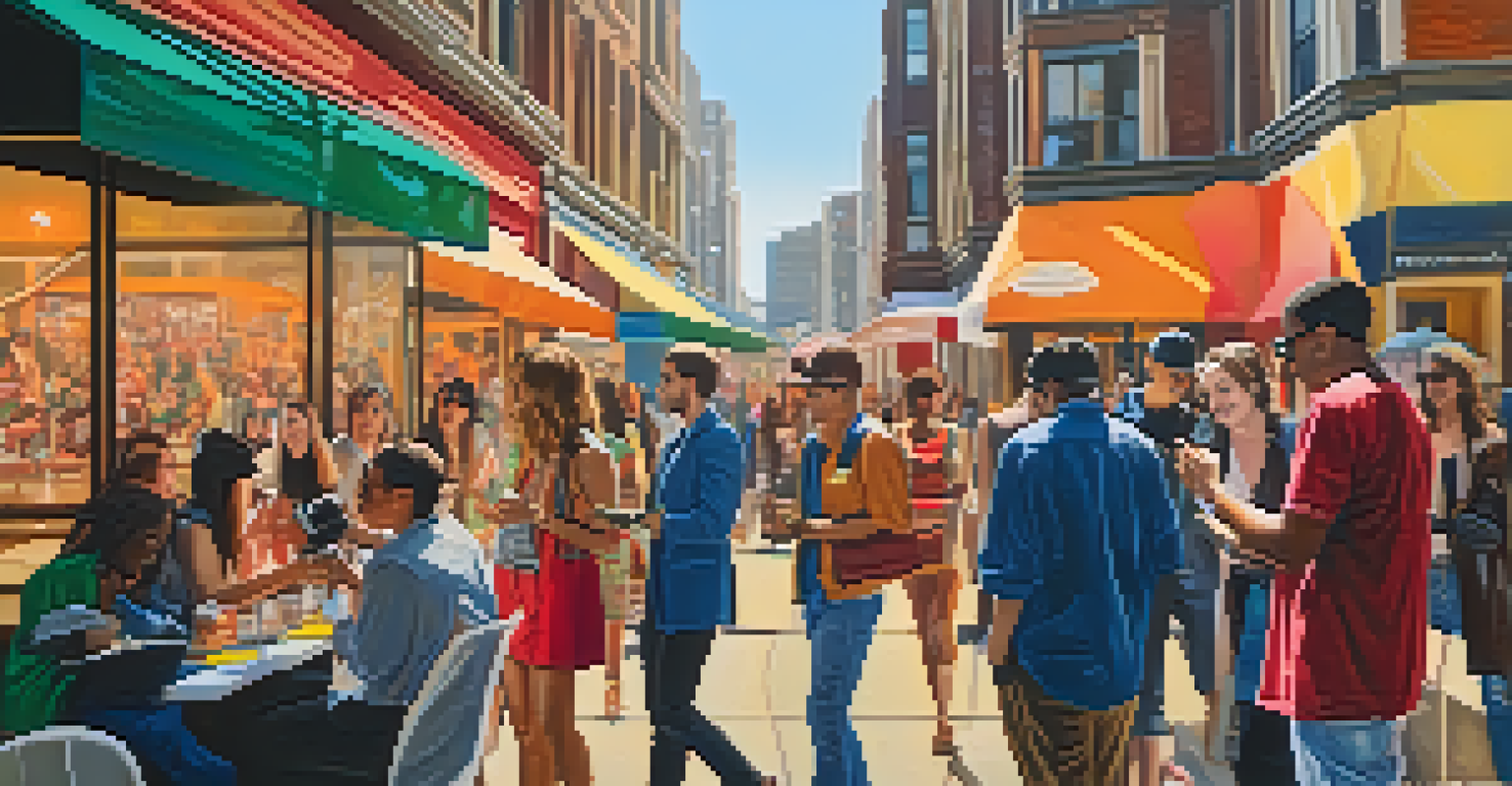E-commerce and Gig Economy: A New Era for Fashion Retail

Understanding E-commerce and the Gig Economy
E-commerce refers to buying and selling goods online, while the gig economy consists of short-term jobs or freelance work. Together, they create a dynamic landscape for retail, especially in the fashion industry. This shift allows brands to reach consumers directly, bypassing traditional retail hurdles.
The future of retail is not about the same old shopping experience, but about finding new ways to engage with consumers through technology and personal connections.
In this new environment, flexibility is key. Gig workers can take on various roles, from delivery drivers to social media influencers, allowing brands to adapt quickly to changing market demands. This adaptability is critical in the fast-paced world of fashion, where trends can change overnight.
Furthermore, consumers are now accustomed to shopping online, making e-commerce a crucial channel for fashion retailers. As they navigate this digital marketplace, businesses can leverage gig workers to enhance their reach and customer experience.
The Rise of Fashion E-commerce Platforms
Fashion e-commerce platforms have surged in popularity, making it easier for consumers to shop from the comfort of their homes. Brands like ASOS and Zalando have built robust online ecosystems that cater to diverse tastes and preferences. This convenience is reshaping how consumers engage with fashion.

With platforms offering a wide range of products, consumers can compare prices, read reviews, and find exactly what they want in no time. This immediacy is crucial, especially for shoppers who want the latest trends without the hassle of visiting physical stores.
E-commerce reshapes fashion retail
The rise of e-commerce allows fashion brands to connect directly with consumers, enhancing flexibility and accessibility.
Moreover, these platforms often utilize gig workers for tasks like modeling, photography, and even customer service. This not only enhances the shopping experience but also creates job opportunities for individuals within the gig economy.
The Role of Gig Workers in Fashion Retail
Gig workers play a vital role in the fashion retail ecosystem, bringing flexibility and creativity to brands. They can be found in various roles, from freelance designers to influencers promoting products on social media. This diversity allows fashion brands to tap into fresh ideas and perspectives.
E-commerce is a key driver of change in the retail landscape, allowing brands to connect with consumers in ways that were never possible before.
For example, a brand might collaborate with a local photographer to create unique content that resonates with their audience. This collaboration not only boosts brand visibility but also supports local talent within the gig economy.
Additionally, gig workers often bring a personal touch to customer interactions, enhancing the overall shopping experience. Their ability to engage with consumers on a personal level creates a sense of community around fashion brands.
Consumer Behavior in the E-commerce Era
Consumer behavior has significantly shifted with the rise of e-commerce. Shoppers now expect seamless online experiences, including easy navigation, fast shipping, and hassle-free returns. This demand places pressure on fashion brands to innovate continuously.
Moreover, consumers are increasingly influenced by social media and peer recommendations. They often turn to influencers and user-generated content to guide their purchasing decisions, highlighting the importance of gig workers in shaping brand perception.
Gig workers enhance brand creativity
Gig workers contribute diverse skills and fresh perspectives, enriching the fashion retail experience through collaboration.
As a result, fashion brands need to stay on top of trends and consumer preferences. By utilizing gig workers who understand these dynamics, brands can better cater to their audiences and enhance customer loyalty.
Sustainability in Fashion E-commerce
Sustainability is becoming a pivotal concern for consumers, particularly in the fashion industry. E-commerce allows brands to adopt more sustainable practices, such as reducing the need for physical stores and minimizing waste through on-demand production. This shift aligns with the growing consumer demand for environmentally friendly options.
Moreover, gig workers can contribute to sustainability efforts by participating in initiatives like second-hand sales or upcycling projects. Brands can engage gig workers to promote these sustainable practices, creating a positive impact both socially and environmentally.
By focusing on sustainability, fashion brands not only attract eco-conscious consumers but also differentiate themselves in a crowded market. This commitment to sustainability can enhance brand loyalty and drive long-term growth.
Technology’s Impact on Fashion Retail
Technology plays a crucial role in shaping the future of fashion retail, especially through e-commerce. From virtual fitting rooms to augmented reality experiences, brands are leveraging technology to enhance the online shopping experience. This innovation can lead to increased sales and customer satisfaction.
Moreover, data analytics allows brands to understand consumer preferences better. By analyzing shopping patterns, brands can tailor their offerings and marketing strategies, ensuring they meet the needs of their audiences more effectively.
Sustainability drives consumer choices
With a growing focus on sustainability, fashion brands that adopt eco-friendly practices can attract and retain conscious consumers.
As technology continues to evolve, the collaboration between fashion brands and gig workers will become more sophisticated. For instance, gig workers can provide insights on emerging trends, helping brands stay ahead of the curve.
Future Trends in E-commerce and Fashion Retail
Looking ahead, the intersection of e-commerce and the gig economy will continue to reshape fashion retail. As consumer preferences evolve, brands will need to remain agile and responsive to changes in the market. This adaptability will be key to thriving in this new retail environment.
Additionally, emerging technologies like artificial intelligence and machine learning will likely play a significant role in personalizing shopping experiences. By leveraging these advancements, brands can offer tailored recommendations, making shopping more enjoyable and efficient.

Ultimately, the future of fashion retail lies in embracing both e-commerce and the gig economy. Brands that harness the potential of these trends will not only survive but thrive in the rapidly changing retail landscape.